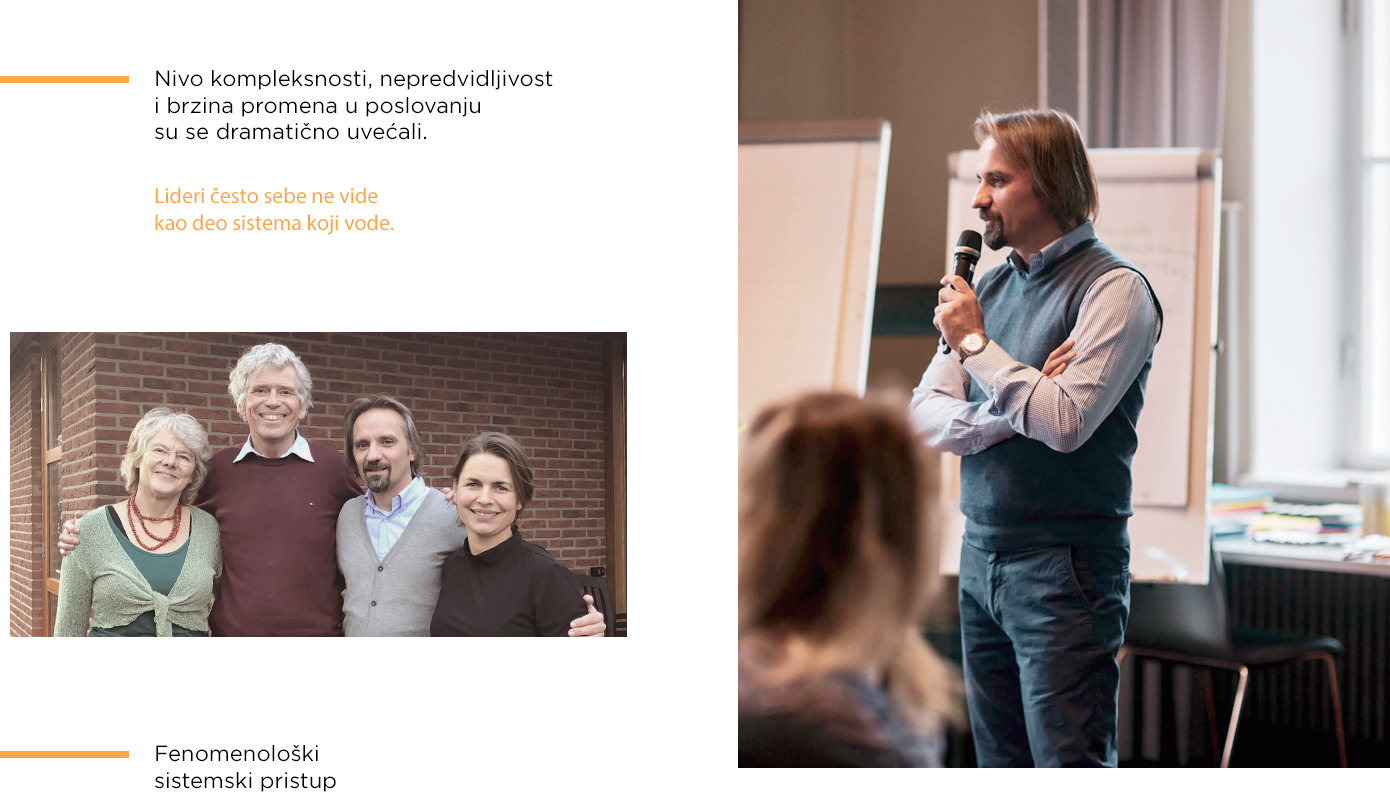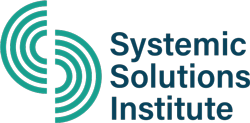MOJA PRIČA
O SISTEMSKIM REŠENJIMA
Nakon 20 godina rada sa liderima i organizacijama, sve češće se susrećem sa situacijom da uobičajeni alati za organizacijski razvoj ne daju željene rezultate: znanje sa treninga se ne zadržava, pristupi upravljanju promenama ne uspevaju da prevaziđu postojeće otpore, interne komunikacijske strategije kreiraju više cinizma nego jasnoće, formalno usvojene organizacijske vrednosti nikada ne zažive u realnosti, nedavno uvedene neformalne prostore za inovacije niko ne posećuje, motivacione mere ne doprinose većoj posvećenosti zaposlenih, itd.
U svim ovim slučajevim, retko je uzrok bila nestručnost ljudi koji su predvodile ove intervencije, pa ipak, sve ove intervencije su – promašile metu. Postalo je očigledno da je bilo neophodno naći neke drugačije načine da se sagledaju organizacijski problemi (ili izazovi, ako više volite), kako bismo ih bolje razumeli, pre nego što isplaniramo bilo kakvu akciju.

Takođe sam se u ovom periodu, suočio sa činjenicom da su se nivo kompleksnosti, nepredvidljivost i brzina promena u poslovanju dramatično uvećali. I svakako će se taj trend samo nastaviti. Izgleda da je, više nego ikada, promena postala jedina konstanta. I da budem jasan, ovde se ne radi samo o rapidnom razvoju tehnologije, već o sveukupnim promenama na globalnom „igralištu“. Izgleda da su se pravila igre promenila, ali da niko ne može u potpunosti da razume na koji način se danas igra.
I ponovo, činilo se da je neophodno započeti potragu za nekim novim načinima za rad sa liderima i organizacijama kako bismo im pomogli da se što bolje snađu u ovim novonastalim okolnostima. Cilj je kreirati organizacijske sisteme koji su vitalni i dovoljno snažni; u kojima svrha organizacije živi, a energija slobodno protiče. Zadatak je uspostaviti organizacije koje uvažavaju svoju prošlost, ali su dovoljno otvorene za budućnost koja je pred njima.
Još jedna pojava koju sam uočio u mojoj coaching praksi sa ljudima na rukovodećim pozicijama je da lideri često sebe ne vide kao deo sistema koji vode. Kao da unutar njih postoji neka nevidljiva barijera između „mene kao lidera“ i „sistema koji predvodim“. I tu je, čini mi se, većina klasičnih coaching pristupa osuđena na neuspeh, ili barem suviše kratkovida i sa manje mogućnosti da podstaknu suštinsku promenu kod svojih klijenata.
Čini se je ovo samo poziv za preispitivanje naših uobičajenih pristupa razvoju lidera; nije više pitanje liderskih sposobnosti pa čak i ni liderskog mindset-a samog po sebi. Pogled na liderstvo mora da bude širi kako bi im omogućio da zaista razumeju sisteme koje vode i da bolje sagledaju svoju ulogu u njima.

Vođen ovim pitanjima, oslonio sam se na svoju radoznalost i krenuo u potragu za pristupom koji bi mogao da donese više koristi mojim klijentima. I kao u izreci „kada je učenik spreman, učitelj se pojavi“, našao sam se u malom selu u blizini Groningena, u Holandiji. To je mesto gde sam otkrio i učio fenomenološki sistemski pristup organizacijskom i liderskom razvoju. Ovaj pristup nastao je na temeljima rada nemačkog filozofa Berta Helingera. Originalno, Helinger se fokusirao na razumevanje funkcionisanja porodičnih i društvenih sistema, ali je sam pristup zahvaljujući njegovom kolegi Guntardu Veberu uskoro našao svoj put i u svet rada sa organizacijama. Primena sistemskog pristupa u razvoju organizacija i lidera dalje je razvijena i usavršena od strane Jan Jakob Stama i saradnika iz njegovog instituta u Midelbertu, pored Groningena.
I upravo je to mesto koje sam posetio nebrojeno puta tokom četiri godine i u kome sam sa velikom posvećenošću učio od Jan Jakob Stama, Bibi Šnajder, Barbare Hogenbom, Antona de Krona i Kristine Blumenštajn-Esen. Svima njima sam beskrajno zahvalan na tom iskustvu. Bio je to dug i intenzivan proces osvajanja sistemskog pogleda na organizacijske i liderske izazove u savremenom svetu. Nije bilo lako, zahtevalo je ne samo učenje, već i odučavanje, ali od samog početka bilo mi je jasno da sam na pravom mestu. Bilo je to mesto sa stvarnim potencijalom i konkretnim načinima kako raditi sa gorepomenutim izazovima, koji su me i doveli u Midelbert.
Dakle, sada je red na mene da dalje proširim sistemski rad sa organizacijama i liderima, kako u Srbiji, tako i u drugim zemljama u kojima radim. Ova web stranica biće mesto na kome ćete moći da upoznate najnovije sistemske načine za rad sa organizacijama i liderima. Želim Vam puno značajnih sistemskih uvida i naravno puno svežih, trajnih i iznenađujućih – sistemskih rešenja.
Darko Marković
Sistemski kouč, facilitator i konsultant
